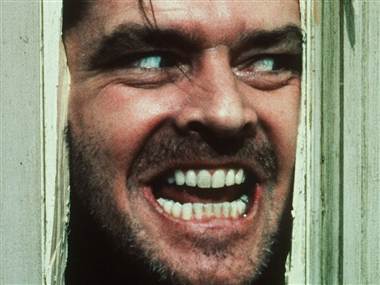The recent death of celebrated actor Philip Seymour Hoffman has sparked a very public conversation about addiction. Some of the opinions expressed have come from people who are informed about the many facets of addiction, and some have come from folks that have no clue what addiction is about.
Personally, I have found this public conversation eerily similar in nature to the public discussion of mental heath. On one side there are the professionals that deal with the many aspects of these two diseases on a daily basis. On the other side are mostly well-meaning, but uninformed people.
If someone’s life has not been touched by addiction in some way, then they have not experienced the often gut-wrenching, frustrating agony this disease inflicts on individuals, families, and society as a whole. They have not had to rebuild in the wake of the destruction the disease leaves in its wake.
First and foremost, yes, it is a disease. Wikipedia defines a disease as:
A disease is an abnormal condition that affects the body of an organism. It is often construed as a medical condition associated with specific symptoms and signs. It may be caused by factors originally from an external source, such as infectious disease, or it may be caused by internal dysfunctions, such as autoimmune diseases. In humans, “disease” is often used more broadly to refer to any condition that causes pain, dysfunction, distress, social problems, or death to the person afflicted, or similar problems for those in contact with the person. In this broader sense, it sometimes includes injuries, disabilities, disorders, syndromes, infections, isolated symptoms, deviant behaviors, and atypical variations of structure and function, while in other contexts and for other purposes these may be considered distinguishable categories. Diseases usually affect people not only physically, but also emotionally, as contracting and living with many diseases can alter one’s perspective on life, and one’s personality.
There are many who believe that addiction is simply a matter of “will power,” and can be turned on and off at will. In the case of Philip Seymour Hoffman, he was clean for over 23 years. What a lot of people don’t understand is that there two distinct sides to that statistic.
The first side is that yes, he did stay clean for a considerable period of time. And yes, he stayed clean because he didn’t use. Simple, right?
The other side of this statistic is all the work that Hoffman did to stay clean. He changed his playmates and playgrounds. He didn’t place himself in positions where he was overly vulnerable to the temptations of using, or where his drug of choice was easily obtainable. He probably maintained some schedule of attending meetings in a 12 Step Program. He valued himself as a person, and he valued the life that he had, and was continuing to build. Being in recovery, staying clean, is work! And, it is work that must be done every day. There can be no days off in recovery.
A person in recovery is always vigilant. They are always on the lookout for signs of “stinking thinking.” They, more than anyone, can not afford the luxury of harboring resentments. We all have those voices in our heads that say silly things to us at one time or another. For an addict, these voices can be deadly because they tend to tell addicts how undeserving they are of what goodness they have in their lives.
Someone who is not an addict, and/or not in recovery will never understand this because to their mind it would be absurd to give in to these voices. They understand that everyone may have a bad day, or a “rough patch,” but in their mind they deal with it, and move on. It does not fester like an untreated wound.
With an addict, doubt festers, and without attention, it begins to infect the addict’s well being. This is where the work involved with a good recovery program is so important. Just a little seed, a little crack in the armor, unattended, will often lead to catastrophic failure. It doesn’t matter whether the addiction is drugs, alcohol, gambling, sex, or whatever it may be; if you are in a recovery program, you have to work that program faithfully, honestly, and judiciously.
Addiction is sneaky. Relapse is really a slow process that begins when the little things that combine to make a recovery strong are taken for granted, or not done as they should be. Every time an addict “gets away with” not working their program, they are one step closer to relapse because they become more emboldened. “Well, see, that wasn’t so bad,” or “Hmm, nothing bad happened there.”
So, little by little, Mr. Hoffman succumbed to his feelings of doubt, loneliness, and pain. He was still wondering if he really was “good enough.” Good enough as an actor, partner, father, friend, human being. All of the above or some of the above, it really doesn’t matter. He did not work his program. To the uninformed, and those unfamiliar with the struggles of the addicted, this seems utterly insane. Welcome to the world of addiction. It is insane! That’s the point. Addiction is not a rational process, so how could rational people understand? They can empathize. They can sympathize. They will never understand.
Several “good” things have been salvaged from Mr. Hoffman’s untimely death. There is now an ongoing public conversation regarding addiction, treatment, and even to some extent, the mental health issues that are extremely relevant in this context. There is a beginning here. People are starting to at least realize that maybe they shouldn’t be so quick to judge another until they have walked in their shoes, and fought their battles. Maybe a new understanding will come from this tragedy.
The real tragedy is that every death from addiction is an unnecessary waste that possibly could have been prevented.
